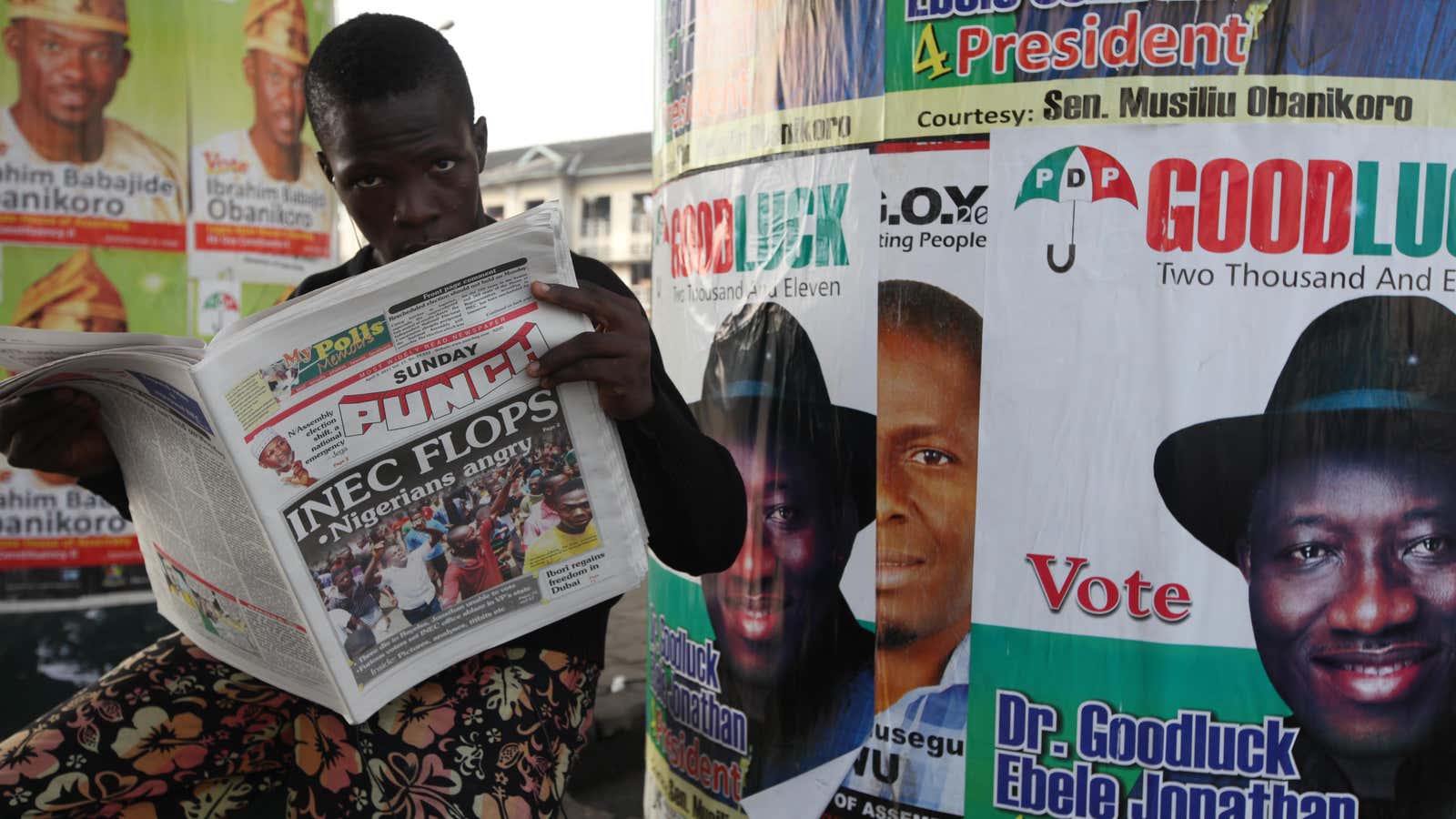Nigeria’s electoral commission said it’s delaying the country’s Feb. 14 presidential election by six weeks to enable security forces to focus on battling the Boko Haram insurgency in Nigeria’s northeast region.
The controversial decision followed what several reports say were warnings from the military and police that they could not guarantee safety by Feb. 14 in four of the states most at risk of Boko Haram attacks during the elections.
The presidential election will be moved to Mar. 28 and state governor elections will be moved to Apr. 11.
Reaction has been overwhelmingly negative from ordinary Nigerians as well as various political stakeholders and commentators. There’s growing concern that protests will erupt in some of the country’s biggest cities like Lagos and Abuja. According to local press reports, at least 21 of the 37 resident electoral commissioners voted against a postponement.
However, Attahiru Jega, chairman of the Independent National Electoral Commission, said that based on advice by security agencies, it would be “unconscionable to have elections without adequate security.”
“The security agencies reiterated that they will be concentrating their attention to the insurgency and may not be able to play its traditional role in providing security during the elections,” Jega said at a press conference in Abuja (which started five hours late).
The biggest loser may very well be Mohammadu Buhari’s All Progressives Congress, which has developed momentum in the past couple of months, partly because of Nigerians’ frustration at the government’s failure to effectively cope with the Boko Haram insurgency.
But a delay won’t necessarily favor President Goodluck Jonathan. It seems unlikely the military can beat back Boko Haram in six weeks, when success has eluded them repeatedly for six years.
And the postponement is not a complete shock, given reports that only two-thirds of the electorate have been able to get their voter cards (PVCs). Another one million displaced from their homes by Boko Haram also would not be able to vote.
Despite Nigerians’ skepticism that the armed forces will be able to make a serious dent on Boko Haram’s growing ambitions, in the last two weeks military support from neighboring Chad and Cameroon appears to have had an impact against the Islamist militia.
And there is a limit to how long the election can be delayed. According to Nigeria’s constitution, elections must be held between 90 and 30 days before May 29, at which time the current administration must hand over the reins to a newly elected government. That means the latest date elections can be held is Apr. 29.
